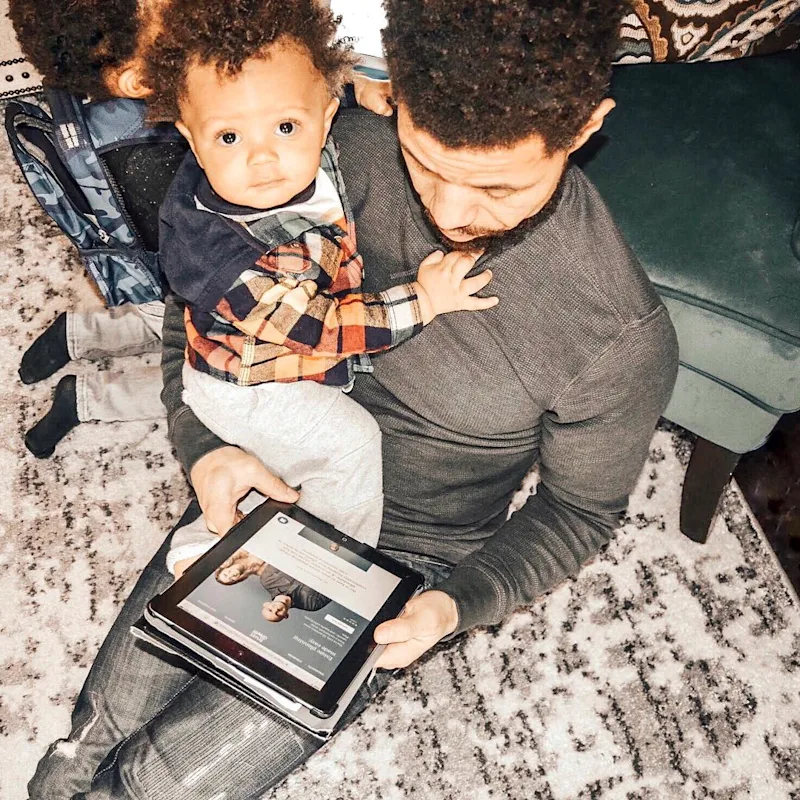Having the estate planning conversation early on is one of the best ways to ensure your family and loved ones can leave a lasting legacy. Mother's Day may feel like a strange time to bring up the topic, but not if it's done correctly. Estate planning isn't just about preparing for your end of life, it's more so about creating a plan to prolong a legacy. It's just as important to have your healthcare directive complete as it is to make sure your mother's family heirlooms have a place in her Will or Trust.
That's why we wanted to provide some helpful tips on how to normalize the estate planning and end of life conversation.
Openly acknowledging and talking about death isn’t just important when we’re talking about Estate Planning. It can actually be a healthy, helpful, practical life-habit in general. Preparing family members for the inevitability of death is really a gift you can give them. But we know, just because something is important, doesn’t always mean it’s always easy.
If you’ve struggled to feel comfortable when talking about death, you’re not alone. That’s why we’re giving tips on how to normalize the topic, or at least make it bearable, so you can have conversations about this important aspect of life when it’s most critical to do so: now.
Benefits of Talking About Death With Your Family
There are a number of good reasons why you might want to spend some time talking to your family about death. We live in a society where it isn’t talked about, which somehow makes this inevitable fact of life seem taboo. But by reassuring those around us that it’s not only OK to talk about, it’s actually a very healthy approach for us to all take, is a great first step. Doing so is both appropriate and can be beneficial.
Because death is scary to us, many of us avoid the subject entirely. Learning how to discuss themes related to and surrounding death can only make relationships stronger. It can reduce the chance that certain things end up left unsaid to one another. But that’s not the only reason you should consider making the topic of death more approachable in your own life.
Establishing healthy coping mechanisms early on
By creating a safe space to discuss a seemingly unpleasant topic like death, we give ourselves permission to really acknowledge how our own death, or the death of a loved one, will directly affect our lives in multiple ways.
After all, we can’t hide from it. Sooner or later, we’ll all experience the loss of a close loved one. A family member, close friend or even a pet will pass away eventually. And by avoiding the subject, we’re only prolonging an extreme inability to survive the treacherous and dark place of grief that sometimes results when someone close to us leaves.
Swiss-American psychiatrist and pioneer in near-death studies Elizabeth Kubler Ross coined the five common stages of grief that you’ve likely heard of. Even if you haven't experienced a death in your own life yet, you almost certainly know about the phases most of us tend to go through. Understanding these stages can help us as we experience them in our own lives. More so, it can help us understand what others are going through.
It’s important to point out that our fear of death is largely a Western cultural phenomenon. Too often, the overwhelming feeling death causes us is uncomfortableness. We’ve never been taught how to talk about death. As a result, we largely don’t know how to feel about it either.
Being able to have conversations about Trust, Wills & final arrangements
But there are even more important aspects as to why we should have conversations about death. One of the more important reasons has to do with the fact that these conversations can tie into larger, also important discussions about Estate Planning and our final wishes.
Making your plan known, and sharing your final wishes can help loved ones come to terms with your passing before they’re forced to do so. It can also reduce the risk of confrontation or misunderstandings after you pass away.
When your wishes are made known upfront, it lessens the chance of contentious feelings or misunderstandings. Estate Planning is a key component to ensuring your loved ones are taken care of, even (or perhaps especially) when you’re no longer around to care for them yourself. The more detailed, thought out and prepared your plans and final arrangements are, and the clearer they are to your close friends and family, the more helpful they’ll be when the time comes that they’re needed.
Encouraging open communication and honest sharing
When you’re open about the reality of death, it can become easier for everyone. It can help those closest to you accept your passing. But like we’ve mentioned, it’s not just helpful, it’s actually healthy to know how to talk and feel about death. It fosters an atmosphere of openness that we all can benefit from. And, it’s critical that you establish the idea that it’s OK to feel every emotion - anger, disbelief, denial - encourage your loved ones to really accept and acknowledge what they’re feeling.
The more comfortable we get with talking about death, the easier it will be for us to accept it. That said, losing someone is never “easy,” but planting an intrinsic seed that reassures us about the process can help significantly in the long run.
How to Talk to Kids About Death
Some of the most challenging conversations you’ll ever have as a parent are the ones where you talk about the death of a friend, family member or even a pet. How you actually broach the subject, and what you ultimately say, will greatly depend on how old your children are. It’s crucial these conversations are age-appropriate.
Discussing death can bring up a lot of emotions, particularly for young children. Making sure that the words you use can be processed by their age-level can be difficult, but that should be your number one goal. Having a basic grasp on the developmental stages of understanding death is helpful as you navigate the discussion.
How to Talk to Your Parents About Death
Whether you’re getting older or you’re facing an illness, or it’s your parents or another elderly family member who is at that stage, talking about death with your parents is not only smart, it can open the door to a deeper conversation about Estate Planning.
While many people find it to be a difficult subject to tackle, that window of opportunity to discuss properly preparing an Estate Plan is priceless. One of the most beneficial parts of having tough conversations is the peace of mind you all can gain from it. You can make sure you’re on the same page in terms of how an estate should be handled. From ensuring beneficiaries are properly designated, to understanding who the best Executor or Trustee should be, to having a clear idea about end-of-life wishes - open dialogue about Estate Plans are something every family should strive for.
How to Talk with Your Siblings About Death
Some of our closest relationships in life are those we have with our siblings. That means talking about death with them can be tricky. But just like with your children and your parents, talking to your siblings can be one of the most important conversations you’ll ever have. Whether you have a big family, or just one sibling, open lines of communication can set expectations so there are no surprises when an Estate Plan comes into play.
You may want to explain your choices so there aren’t any hurt feelings once you’re gone. Or maybe you want to make sure that your siblings have properly set up their own Estate Plan to protect their loved ones and legacy. Either way, often in life we find the most challenging conversations are the ones that can bring us the closest.
Death certainly isn’t a fun topic, but even if, as a culture, we don’t embrace the idea that it’s certain, that doesn’t mean in your own life you shouldn’t have transparent conversations surrounding the subject. It can be the backbone of a greater conversation that allows you to trust that your friends, family and loved ones… those who are the most vulnerable in your life, will be taken care of. Talking about death and making sure your Estate Plan is set up properly are two things in life we shouldn’t avoid, even if they seem daunting...
Last updated: March 21, 2025





